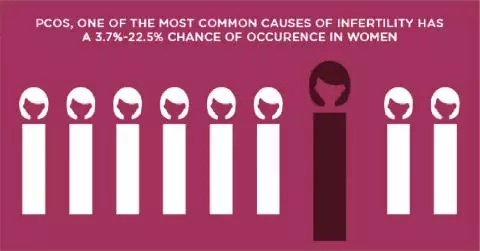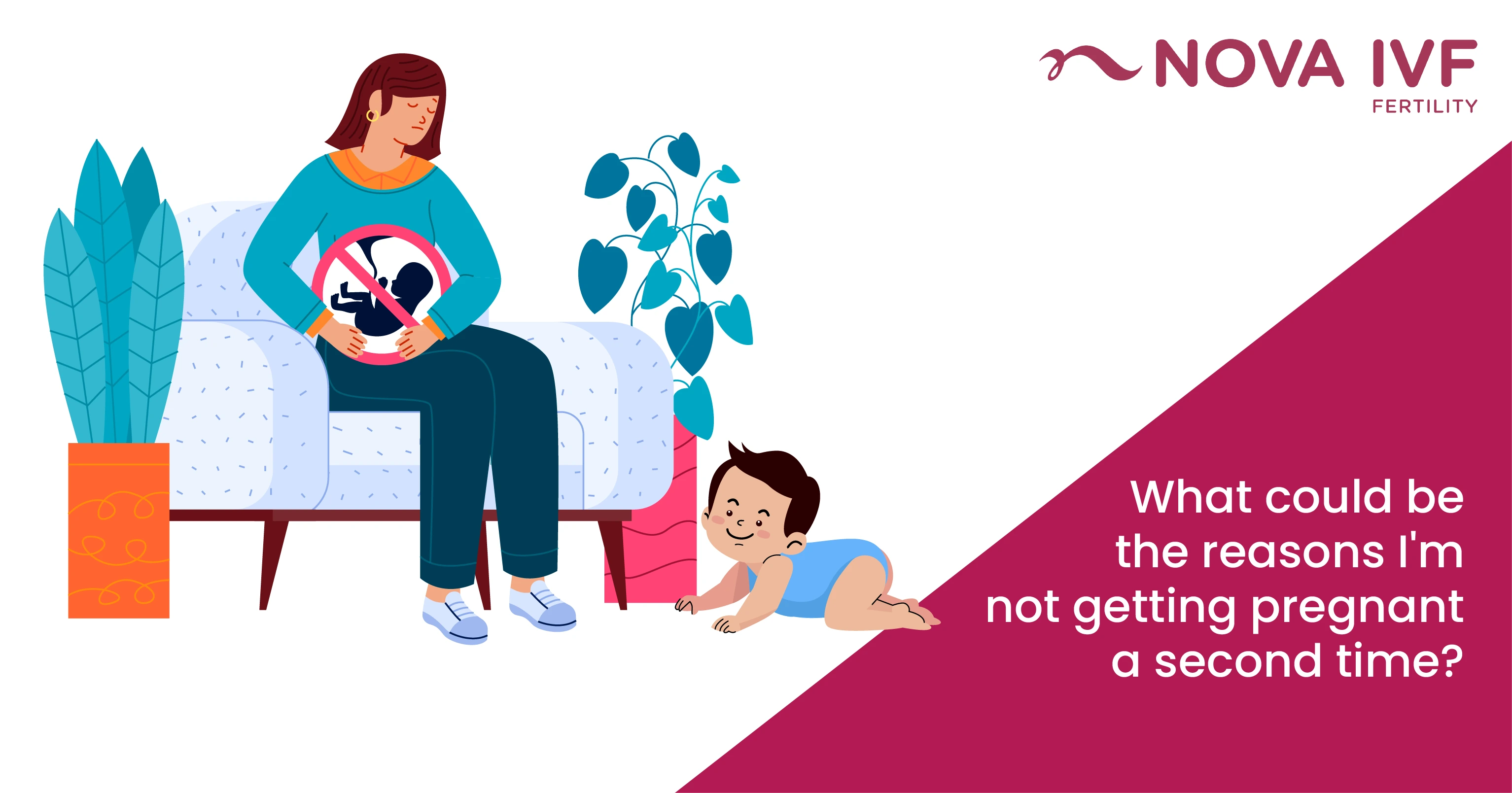Polycystic Ovarian Syndrome (PCOS): Causes

What is PCOS?
Polycystic Ovarian Syndrome (PCOS), largely a genetic disorder may affect 35 percent of women in their reproductive years and close to 90 per cent of obese/ overweight women. The incidence of PCOS is rising among young women and is probably the largest contributor to female infertility.
Every month, a woman’s ovary produces one egg for fertilization. The ovary has tiny fluid-filled sacs called follicles or cysts. As the egg grows, the follicle builds up fluid. When the egg matures, the follicle breaks open and the egg is released. It then travels through the Fallopian Tube to the uterus (womb) for fertilization. This process is called ovulation.
In women with PCOS, the egg does not mature since the hormones required for an egg to fully mature are not produced in the body. The follicles may start to grow and build up fluid but ovulation does not occur. Instead, some follicles remain as cysts in the ovaries.
When a young woman attains puberty it is important that she keeps a vigil on her menstrual cycle, particularly, if she is obese or overweight. Being alert is about maintaining a diary on her period dates and understanding her cycle. In case she notices any of the following aberrations, alarm bells should start ringing.
What is the main cause of PCOS?
- Not following a 28/30 day cycle or delayed periods
- Infrequent or insufficient flow of menstrual blood
- Less than 12 menstrual cycles a year
It is possible that a few of these may occur due to other factors but if the problem persists beyond 6 months, it is important for to look out for symptoms of PCOS. Though a common occurrence among teenagers there is a likelihood PCOS can affect adults before or after childbirth. Treatment is absolutely essential to control this disorder and prevent long-term health problems.
Common Symptoms Of PCOS
- Sudden growth of facial hair i.e. sideburns, under the chin and body hair – in the chest, midriff, navel, lower back regions
- Androgenic form of balding or receding hairline or loss of hair
- Change of voice or any other changes that are associated with male puberty
- Appearance of unusual levels of acne or pimples
Treatment For PCOS
How PCOS Affects Your Body
The first step in the treatment involves bringing the hormonal imbalance under control and stimulating ovulation. This is achieved through medication, a combination of Oral Contraceptive Pills (OCP) to flush out the cysts followed by the management of irregular hormone production and erratic sugar levels with oral medicines. What is most critical to the entire process is bringing one’s weight under control and doing routine physical exercise, the fastest way to control PCOS is through weight loss.
Though OCP is an immediate treatment, over a period of time, it is essential to manage hormonal imbalance or it will create further problems in a woman’s reproductive system. It may lead to infertility due to lack of ovulation.
On the bright side, statistically 20% of women, who have polycystic ovaries, may not have problems in ovulating or conceiving. Unlike many disorders, PCOS is manageable once the treatment begins. Recognizing the symptoms of PCOS early and working on improving insulin resistance through diet and exercise can help prevent complications of PCOS including infertility and other complications during pregnancy.
A timely visit to an endocrinologist and a gynecologist can reduce the anxiety. PCOS may be an early warning to larger health issues like diabetes and heart problems which does require lifelong treatment.
 Infertility Counselling
Infertility Counselling Female Infertility Treatment
Female Infertility Treatment Andrology Treatment
Andrology Treatment Fertility Enhancing Surgeries - Female
Fertility Enhancing Surgeries - Female Fertility Enhancing Surgeries - Male
Fertility Enhancing Surgeries - Male Endoscopy Treatment
Endoscopy Treatment IUI Treatment
IUI Treatment IVF Treatment
IVF Treatment ICSI Treatment
ICSI Treatment Advanced IVF Solutions
Advanced IVF Solutions Embryology
Embryology Vitrification Egg, Embryo, Sperm Freezing
Vitrification Egg, Embryo, Sperm Freezing Preimplantation Genetic Testing (PGT)
Preimplantation Genetic Testing (PGT) Donation Program Embryo / Egg / Sperm
Donation Program Embryo / Egg / Sperm Self-cycleTM IVF
Self-cycleTM IVF

 Self-cycleTM IVF
Self-cycleTM IVF









